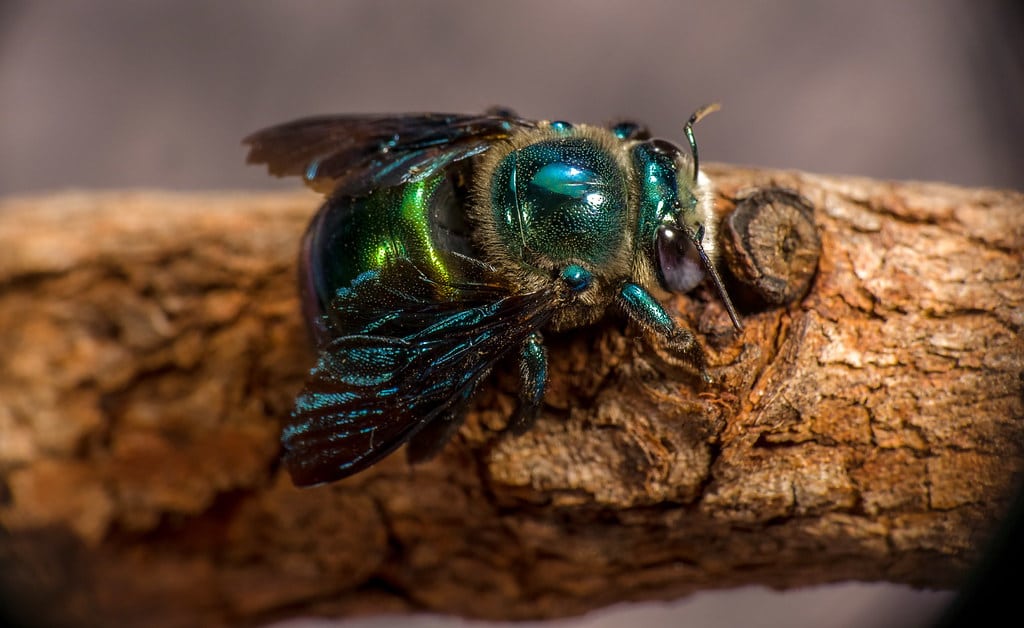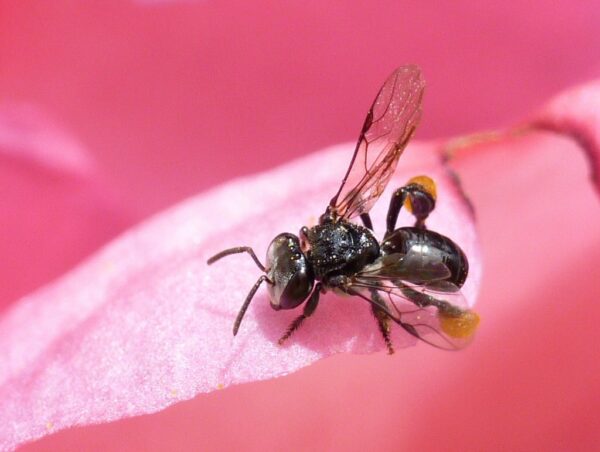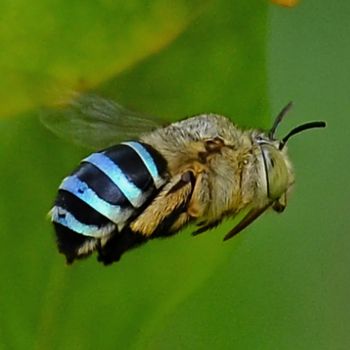The Buzz of Life: Why Australian Native Bees are Essential for Our Ecosystems and Agriculture
The Buzz of Life: Why Australian Native Bees are Essential for Our Ecosystems and Agriculture

Australia boasts a remarkable biodiversity, and among its most fascinating inhabitants are the native bees. These tiny creatures, often overlooked in favour of their European honeybee cousins, play a vital role in maintaining the delicate balance of our ecosystems and ensuring the success of our agricultural industry. While honeybees are undoubtedly valuable, Australian native bees are uniquely adapted to our continent’s diverse flora and are crucial for the pollination of many native plants and crops.
Beyond the Honey: The Ecological Importance of Native Bees
Related Articles: The Buzz of Life: Why Australian Native Bees are Essential for Our Ecosystems and Agriculture
- A Taste Of The Outback: Exploring The Common Fruits Of Australia’s Wild Heart
- The Enigma Of Tamil In Australia: Unraveling The Threads Of Linguistic History
- Julpe: Unraveling The Meaning Behind The Aboriginal Name For "Wise Man"
- The Black Of The Aboriginal Flag: A Symbol Of Strength, Resilience, And Connection To The Land
- The Rhythms Of The Land: Exploring The Vibrant World Of Australian Indigenous Beating Instruments
The Australian landscape is a tapestry of unique and diverse plant life, many of which rely heavily on native bees for pollination. These bees have evolved alongside our native flora, developing specialized relationships with specific plants. For example, the distinctive blue-banded bee, with its long, slender tongue, is perfectly suited to pollinate the delicate flowers of native orchids.
1. Supporting Biodiversity:
Native bees are essential for the survival of countless plant species, many of which are endemic to Australia. By pollinating these plants, they ensure their reproduction and contribute to the overall health and diversity of our ecosystems. This interconnectedness is crucial for maintaining the delicate balance of nature.
2. Seed Production and Regeneration:
The pollination process facilitated by native bees is vital for seed production and regeneration. This ensures the continuation of native plant populations, which in turn provide food and shelter for a multitude of animals, including birds, reptiles, and mammals.
3. Ecosystem Services:
Native bees contribute to a range of ecosystem services that benefit humans. These include:
- Pollination of native plants: This leads to the production of fruits, seeds, and other resources that are important for food and medicine.
- Soil health: Native bees contribute to soil health by transporting pollen and facilitating the decomposition of organic matter.
- Climate regulation: Native bees play a role in regulating the climate by supporting healthy plant communities that absorb carbon dioxide.

Beyond the Bush: Native Bees and Agriculture

The importance of native bees extends beyond the realm of native ecosystems. They are increasingly recognized as valuable pollinators for a range of agricultural crops.
1. Pollination of Commercial Crops:
Australian native bees are efficient pollinators of various commercial crops, including:
- Fruit and vegetable crops: Apples, pears, blueberries, tomatoes, and pumpkins are just some of the crops that benefit from native bee pollination.
- Nut crops: Almonds, macadamias, and hazelnuts rely heavily on native bees for pollination.
- Oilseed crops: Canola and sunflower are also pollinated by native bees.

2. Enhancing Crop Yields and Quality:
Studies have shown that the presence of native bees can significantly enhance crop yields and quality. By increasing pollination rates, native bees contribute to larger, healthier fruits and vegetables, as well as improved seed production.
3. Resilience and Adaptation:
Native bees are often more resilient to pests and diseases than their European counterparts. They are also better adapted to the Australian climate and can pollinate crops during periods of extreme heat or drought.
4. Sustainable Agriculture:
Native bees play a crucial role in promoting sustainable agricultural practices. Their presence reduces the need for pesticides and artificial pollination methods, which can have negative environmental impacts.
Challenges Facing Native Bees
Despite their vital role, Australian native bees face a number of challenges, including:
- Habitat loss and fragmentation: As urban development and agricultural intensification continue, native bee habitats are being destroyed or fragmented, limiting their ability to forage and reproduce.
- Pesticide use: Pesticides used in agriculture can be harmful to native bees, leading to death or reduced populations.
- Climate change: Climate change is altering weather patterns and impacting the availability of food and nesting sites for native bees.
- Introduced species: Introduced species, such as the Asian honeybee, can compete with native bees for resources and spread diseases.
Protecting our Native Bee Heroes
Protecting and supporting native bee populations is essential for the health of our ecosystems and the sustainability of our agriculture. We can all play a role in safeguarding these vital pollinators:
- Plant native plants: Creating gardens and landscapes with native plants provides food and shelter for native bees.
- Reduce pesticide use: Choose organic or low-pesticide options whenever possible.
- Provide nesting sites: Native bees need suitable nesting sites. Consider providing bee boxes, hollow logs, or leaving areas of undisturbed ground.
- Support bee-friendly initiatives: Support organizations working to protect and conserve native bee populations.
- Educate others: Spread the word about the importance of native bees and how we can all help protect them.
FAQ: Importance of Australian Native Bees in Ecosystems and Agriculture
Q: What are the key differences between Australian native bees and European honeybees?
A: Australian native bees are generally smaller and more solitary than European honeybees. They are also highly specialized, with many species adapted to specific plants.
Q: Why are native bees better pollinators than honeybees for some crops?
A: Native bees are often more efficient pollinators than honeybees for certain crops, especially those with complex flower structures. They are also better adapted to the Australian climate and can pollinate during periods of extreme heat or drought.
Q: How can I tell if a bee is a native bee or a honeybee?
A: Native bees come in a wide variety of shapes, sizes, and colours. They are often smaller than honeybees and may have distinctive markings or patterns.
Q: What are some of the threats facing native bees?
A: Habitat loss, pesticide use, climate change, and introduced species are all major threats to native bee populations.
Q: How can I help protect native bees?
A: You can help protect native bees by planting native plants, reducing pesticide use, providing nesting sites, and supporting bee-friendly initiatives.
Conclusion
The buzz of native bees is a symphony of life, a testament to the intricate web of relationships that sustain our ecosystems and our agriculture. By recognizing the vital role these tiny creatures play, we can all contribute to their protection and ensure a future where the buzz of life continues to resonate across the Australian landscape.

Closure
Thus, we hope this article has provided valuable insights into The Buzz of Life: Why Australian Native Bees are Essential for Our Ecosystems and Agriculture. We hope you find this article informative and beneficial. See you in our next article!


